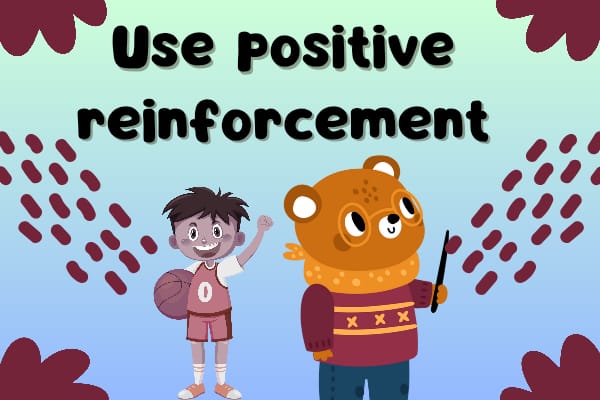Learn expert techniques for boundary setting, positive reinforcement, and emotional connection to develop good parenting skills to raise happy, confident, and well-behaved children.

Here are 10 powerful tips for every parenting skill that every parent should know
Discover 10 powerful tips for good parenting skills to raise happy, confident, and well-behaved children. Expert advice that every parent needs to know now!
https://www.icarenest.com/tips-for-good-parenting-skills-guide
Introduction: Why Good Parenting Skills Are More Important Than Ever
In today’s fast-paced world, parents face countless challenges—from managing screen time to ensuring healthy emotional development. Learning and applying the right tips for good parenting skills can make the difference between surviving and thriving as a family. Whether you’re parenting for the first time or raising a teenager, improving your parenting style is always worth the effort.
1. Set clear and consistent boundaries

Children need rules and structure to feel safe. Be consistent with expectations and consequences. When boundaries are clear, kids understand what behavior is acceptable.
Tips: Write down family rules and post them where everyone can see them. Always be honest with your kids.
2. Practice active listening

The most underrated parenting skill is to really listen. Avoid interrupting your child. Make eye contact, nod, and repeat back what they say to get your attention.
Bonus: It encourages emotional intelligence and self-expression in kids.
3. Use positive reinforcement

Praise and encouragement go a long way. Recognize effort, not just results. Celebrate progress in school, social skills, and behavior to build self-esteem. Prioritize small successes.
Example: “I’m proud of the way you handled the situation with your friend.”
4. Model the behavior you want to see

Children learn by observing. Show kindness, honesty, patience, and responsibility in your own actions. If you expect respect, give it. If you teach them how to do things without being told to do them, they will. Good parenting requires kindness
Truth: Behavioral modeling is more effective than verbal instruction alone.
5. Communicate openly and frequently
Effective communication builds trust. Discuss feelings, challenges, and ideas regularly. Avoid yelling or interrupting. Stop telling your kids to say yes and no.
Top tip: Use age-appropriate language and ask open-ended questions.
6. Create routines for stability
Children thrive on structure. Morning routines, mealtimes, and bedtime rituals provide a sense of security and predictability. If there is more than one child in the house, hold them both accountable and explain when one makes a mistake.
Remind them: Predictability reduces anxiety and encourages cooperation.
7. Stay calm during conflict

Conflict is normal. The key is how you deal with them. Stay calm, don’t yell, and avoid punishing when you get angry. It’s more effective to end the time-out with a calm explanation.
Try this: Take a deep breath before responding to challenging behavior.
8. Educate yourself

Good parenting skills develop as your child grows. Read books. Remember that if you are addicted to mobile or internet, your children will learn them, so read books yourself and attend workshops while educating your children, and check out reliable websites like
American Academy of Pediatrics
They provide research-based tips for good parenting skills at every stage.
9. Encourage independence and responsibility
Give children age-appropriate tasks and trust them to complete them. Letting your child make choices teaches responsibility and builds confidence. Take full responsibility when raising your child. Do not neglect your children at all.
Example: Let your 5-year-old choose between two outfits or foods.
10. Prioritize emotional connection over perfection
Table of Contents
Perfection isn’t essential—connection is. Spend quality time with your child. Hugs, kind words, and shared experiences strengthen bonding and reduce behavioral problems.
Reminder: Children don’t need perfect parents; they need present, loving ones.
Bonus: Beware of these common parenting mistakes
Being too permissive or too strict
Inconsistent discipline
Lack of emotional availability
Comparing your child to others
Ignoring mental health or emotional needs
Avoiding these mistakes will make your parenting skills stronger.
✅ Key tips for good parenting skills
Be consistent, calm, and communicative.
Model positive behavior.
Encourage independence.
Use routines and reinforcement.
Stay emotionally connected and informed.
Final Thoughts
By implementing these expert-backed tips for good parenting skills, you will build stronger relationships, reduce stress, and raise emotionally intelligent, respectful, and resilient children. Start small, be consistent, and always lead with love.
Conclusion
Good parenting is a journey that requires patience, consistency, and love. By implementing these 10 powerful tips — setting clear boundaries, practicing active listening, using positive reinforcement, and modeling good behavior — you can raise confident, well-rounded children. Open communication, structured routines, and emotional connection create a stable environment where kids feel safe. Staying calm during conflict and constantly educating yourself further strengthens your parenting skills.
